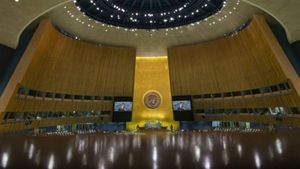On February 24, 2025, the impeachment trial of three prominent prosecutors, Lee Chang-soo, Jo Sang-won, and Choi Jae-hoon, concluded at the Constitutional Court, concluding proceedings amid emotional appeals and serious allegations at the heart of the case involving Kim Geon-hee. The prosecutors, all from the Seoul Central District Prosecutor's Office, faced impeachment for their handling of allegations involving Kim, the wife of the current president, who was accused of stock manipulation.
The trial's culmination came after the National Assembly approved the impeachment motion on December 5, 2024, citing insufficient investigation and alleged misinformation surrounding the decision not to prosecute Kim Geon-hee. During their defense, the prosecutors passionately defended their actions, emphasizing their commitment to the law and expressing deep emotional distress over the entire process.
Choi Jae-hoon, head of the Anti-Corruption Investigation Division, became visibly emotional during his closing remarks. "I stand proud as there was no wrongdoing during my duties," he asserted, fighting back tears. His testimony focused on his dedication to resolving long-standing cases, including the Kim Geon-hee investigation, which had been dormant for nearly four years before his tenure.
Lee Chang-soo, the prosecutor-in-charge, criticized the impeachment as politically motivated, declaring, "The use of impeachment rights against us is not just wrong; it undermines the integrity of our entire judicial system." He argued vigorously against the notion of accountability being tied to political outcomes, stressing the need for impartiality within the law.
Jo Sang-won also raised important points during the proceedings. He questioned whether the impeachment was intended to stifle their ability to pursue other significant cases, particularly those tied to members of the opposition party. His assertions hinted at suspicions about potential interference by those with political influence, framing the impeachment as part of broader attempts to manipulate justice.
Throughout the proceedings, the prosecutors faced scrutiny for purportedly failing to conduct necessary investigations, including search warrants related to the allegations against Kim Geon-hee. The court heard arguments concerning the ramifications of the lack of thorough investigation and the defendants' explanations attempting to reconcile conflicting accounts of their conduct during the case.
The prosecution team maintained their innocence, framing the results of the investigation as compliant with legal standards and expressing frustration with the accusations of malpractice and oversight. The defense's narrative revolved around the difficulties faced when dealing with politically sensitive cases, especially ones involving influential figures like Kim Geon-hee.
Following the testimonies and heated exchanges between the parties involved, the Constitutional Court adjourned proceedings with the intention to announce a ruling date at a later time. Public interest and media coverage surrounding this trial have surged, reflecting the contentious nature of legal accountability amid high-profile political figures.
This case is emblematic of the complex interplay between politics and law enforcement, highlighting how positions of power can influence perceptions of justice and accountability. Citizens are left wondering how these developments will affect their faith in the judicial process and whether political motives will continue to overshadow the pursuit of justice.
Moving forward, the rulings and the responses from various stakeholders will be closely monitored. The trial has showcased the raw emotions and conflicting narratives inherent within deeply political contexts. Observers anticipate the ramifications of this impeachment trial will resonate within South Korea's legal and political landscapes for years to come.



